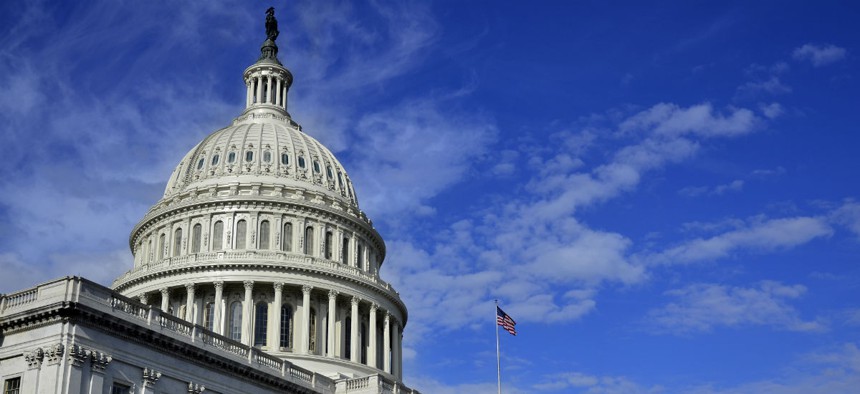House to Consider Remaining Eight Spending Bills in One Package After Recess
Lawmakers have until Oct. 1 to avoid a shutdown.
The House plans to consider the eight remaining spending bills that Congress must pass to avoid a government shutdown en masse when it returns from recess in September.
The package would set the appropriations for all federal agencies except for those already included in a “minibus” bill that covered defense, veterans affairs, energy and water, and the legislative branch. The new, larger package would fund agencies related to agriculture; commerce, justice and science; financial services and general government; homeland security; interior; labor, health and human services and education; state and foreign operations; and transportation, housing and urban development.
Lawmakers wishing to offer amendments to the collection of spending bills will likely need to submit them to the House Rules Committee at some point this month while the chamber is still on recess, chairman Rep. Pete Sessions, R-Texas, told members in an announcement. Despite the packaging, Sessions warned members each of their amendments must apply to only one of the eight bills. The committee has not yet set the actual deadline to submit amendments.
The House Appropriations Committee has already approved all 12 bills necessary to keep federal agencies open past Sept. 30. Its counterpart in the Senate, however, has only moved forward half of the requisite measures. While the full House has approved one-third of the appropriations bills through the minibus, no spending measures for fiscal 2018 have received a vote on the Senate floor.
With Congress out of session for the remainder of August, time is running low for the two chambers to reconcile their differences on spending levels. They also must strike an agreement on a budget deal, or risk a sequester under the 2011 Budget Control Act that set spending caps. The minibus as currently written would exceed those caps on defense spending by $72 billion and would trigger a revocation of 13.2 percent of funds from all defense accounts.
NEXT STORY: Agencies Need A STEM Talent Management System








